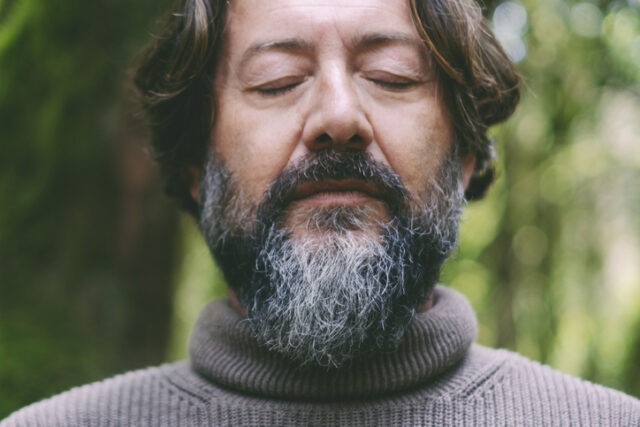Most people avoid talking about death, but that avoidance comes at a cost.

Sure, no one wants to sit around getting depressed about the fact that one day, we just won’t be here anymore. However, there are practicalities to passing away that need to be discussed, and not everyone is open to talking about them. Whether it’s fear, discomfort, or just habit, dodging the subject doesn’t make it disappear. Here’s what happens when you never truly face it.
1. You fear it more, not less.

Avoiding death doesn’t make it feel less threatening—it often amplifies your anxiety around it. The more taboo or off-limits it becomes, the more power it holds over your thoughts, especially in moments of uncertainty. By refusing to look at it, you build it up as a shadowy unknown. However, when you begin to talk about it openly and calmly, it starts to lose some of that fear-driven grip.
2. You leave other people unsure of your wishes.

If you avoid conversations about what you want when you’re gone—medical choices, funeral preferences, or even how you’d like to be remembered—your loved ones are left to guess. Sadly, guessing often leads to conflict, guilt, or second-guessing later. Talking about death doesn’t mean you’re inviting it in. It means you’re offering clarity to the people who care about you. It’s one of the kindest forms of emotional responsibility.
3. You never really process grief when it hits.

People who never talk about death often find themselves emotionally overwhelmed when they lose someone. Grief becomes not just about loss, but about facing a subject they’ve spent years avoiding. Without emotional tools or language, the pain can feel like drowning. Talking about death before it touches you doesn’t make you cold. It makes you better prepared to feel and process with honesty when the time comes.
4. You disconnect from the reality of your own mortality.

When you act like death is a distant thing that only happens to “other people,” you lose connection with the reality that your time is finite. That disconnect can lead to living passively, putting things off, or staying numb. Facing mortality doesn’t make life darker, though—it makes it more vivid. It helps you prioritise what matters, let go of what doesn’t, and live in a way that reflects what you actually value.
5. You miss opportunities for deeper conversations.

Some of the most honest, moving, and connecting conversations happen when people talk about loss, mortality, or what comes after. Avoiding those topics can keep relationships stuck on the surface. You don’t need to dwell on death to make space for it. Just allowing those moments—when someone opens up, remembers someone, or reflects—can lead to the kind of closeness that small talk never creates.
6. You create fear in children instead of comfort.

If kids grow up in an environment where death is treated like a taboo, they’ll internalise the idea that it’s something terrifying and unspeakable. That makes future grief harder to process. When children are allowed to ask questions about death, talk about feelings, and remember loved ones openly, they develop emotional resilience. It’s not about giving them answers—it’s about giving them space to explore safely.
7. You avoid planning until it’s too late.

Many people avoid writing a will, naming emergency contacts, or making end-of-life decisions because it feels too uncomfortable. However, the truth is, these tasks become far more urgent—and stressful—when left until the last moment. Planning ahead doesn’t mean you’re pessimistic. It means you care enough to make life easier for the people you love. Having those things sorted can also give you a surprising sense of peace.
8. You might pass down emotional avoidance as a legacy.

Children and close relationships often reflect what we model. If you avoid the topic of death completely, you may unintentionally teach other people that denial is the safest response to loss. That avoidance can echo through generations, making grief feel lonelier and harder than it needs to be. Talking about death with calm honesty helps normalise it, and gives everyone around you permission to do the same.
9. You feel more alone in your fears.

Death is something everyone thinks about at some point, but when you never talk about it, those thoughts feel isolating. You might assume other people are braver, more accepting, or not thinking about it at all. Opening up about death, even just quietly with someone you trust, can be surprisingly connecting. It reminds you that you’re not weird, broken, or overly dramatic for thinking about what’s inevitable.
10. You miss out on honouring the lives of those who’ve passed.

Avoiding death often means avoiding conversations about people we’ve lost. However, those stories, memories, and reflections are part of what keep someone present in our hearts. Talking about someone who died isn’t “dwelling on the past.” It’s how we honour legacy, process love, and remind ourselves that grief and memory can co-exist with joy.
11. You might face death with more regret than peace.

When death is never discussed, it’s easy to put off meaningful choices—mending a relationship, saying what matters, or living the way you want to be remembered. Avoidance pushes those things to “someday,” and someday doesn’t always arrive. Facing death, even in small reflective ways, often leads to fewer regrets and more intention. It makes you consider the mark you’re leaving behind and encourages action while you still have time.
12. You leave important emotional things unsaid.

Whether it’s telling someone you love them, asking for forgiveness, or expressing gratitude—many people assume there will be time later. But when we avoid thinking about death, we delay the conversations that matter most. Taking death off the taboo list makes it easier to speak from the heart. Plus, it often deepens relationships in ways that simple day-to-day interactions never quite reach.
13. You may develop more anxiety around illness or ageing.

When death is off-limits, so is everything that hints at it—illness, ageing, change. That can make natural life processes feel like threats, instead of transitions to be met with grace. People who face death head-on often report less fear around their own health changes. They’ve developed emotional tolerance, not just for endings, but for the changes that lead up to them.
14. You rob yourself of the clarity it can bring.

Oddly enough, facing death can make life feel sharper. When you acknowledge your mortality, you tend to make better choices—saying no to things that don’t matter and yes to things that do. Avoiding death can keep you floating through life. Facing it, in a grounded way, often brings urgency, depth, and clarity. It’s not about being morbid. It’s about remembering that you’re alive right now, and that matters.




